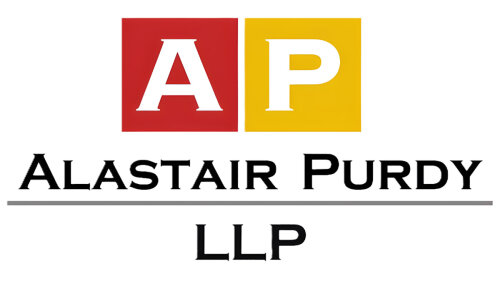Best Land Use & Zoning Lawyers in Ireland
Share your needs with us, get contacted by law firms.
Free. Takes 2 min.
Free Guide to Hiring a Real Estate Lawyer
Or refine your search by selecting a city:
List of the best lawyers in Ireland
About Land Use & Zoning Law in Ireland
Land use and zoning law in Ireland play a critical role in the development and management of the country's land resources. These laws are designed to ensure sustainable development, protect natural and built heritage, and promote economic growth. Zoning regulations dictate how land can be used, be it residential, commercial, agricultural, or industrial, influencing where people live, work, and play. Local authorities primarily govern these regulations under the framework provided by national legislation, such as the Planning and Development Act of 2000 and its subsequent amendments.
Why You May Need a Lawyer
Legal assistance in the field of land use and zoning may be necessary for several reasons:
- Property Development: Developers may need guidance on obtaining planning permission, complying with local zoning regulations, and addressing objections or appeals.
- Buying or Selling Property: Ensuring that the property complies with current zoning laws and understanding the implications of any zoning restrictions.
- Rezoning Requests: Navigating the process of applying for zoning changes to accommodate different land use than currently permitted.
- Disputes: Resolving conflicts with neighbors or local authorities regarding land use rights or zoning compliance.
- Environmental Concerns: Compliance with environmental regulations that may affect land use, such as those protecting wildlife habitats or landscapes.
Local Laws Overview
Local land use and zoning laws in Ireland are shaped by both national policy and the specific needs of local communities. Key laws and regulations include:
- Planning and Development Act: This act provides the framework for development control, setting out the procedures for planning applications, appeals, and the enforcement of planning directives.
- Development Plans: Each local authority in Ireland prepares a development plan which details zoning policies, objectives, and maps for land use within their jurisdiction.
- Environmental Impact Assessment (EIA): For certain projects, an EIA is required to evaluate the potential effects on the environment before planning permission can be granted.
- Building Regulations: These regulate construction standards for safety, health, and energy conservation, impacting how developments are carried out.
- Historic and Natural Heritage Protections: Legal protections for listed buildings, archaeological sites, and conservation areas can limit development possibilities.
Frequently Asked Questions
1. What is zoning?
Zoning refers to the division of an area into zones where certain land uses are permitted or prohibited, impacting what activities can occur in each location.
2. How can I find out the zoning designation of a property?
You can check the zoning designation by consulting the local development plan available from the local authority or their website.
3. What is planning permission?
Planning permission is the approval needed to undertake building or development work, ensuring compliance with local zoning and planning regulations.
4. How do I apply for planning permission?
Applications are made through the local authority's planning department, often requiring detailed plans and an Environmental Impact Assessment for larger projects.
5. Can I challenge a planning decision?
Yes, decisions can be appealed to An Bord Pleanála, Ireland's national planning appeals board, usually within a specified time frame.
6. What if my development is non-compliant with zoning laws?
If non-compliance is detected, you may be subject to enforcement actions, and legal advice should be sought to address compliance issues or apply for a change of use.
7. How long does the planning process take?
The process can vary but typically takes about eight weeks for a decision, with additional time required if appeals are lodged.
8. What happens if there is an objection to my planning application?
Objections from the public or nearby property owners must be considered by the planning authority, and they may impact the approval process.
9. Are there fees associated with planning applications?
Yes, fees are applicable for most planning applications and they depend on the nature and scale of the proposed development.
10. What resources are available for understanding zoning regulations?
The local authority's planning office and their website, as well as national resources like the Department of Housing, Local Government and Heritage, provide guidance and information on zoning regulations.
Additional Resources
- Local Authority Planning Offices: These offices provide information and guidance on local planning matters.
- An Bord Pleanála: For appeals of planning decisions.
- Department of Housing, Local Government and Heritage: National information on planning laws and regulations.
- Citizens Information: Public service providing advice on planning issues.
- Environmental Protection Agency (EPA): Resources and regulations for environmental considerations in land use.
Next Steps
If you believe you need legal assistance in the area of land use and zoning, consider taking the following steps:
- Identify Your Needs: Clearly define what you need legal assistance with, whether it’s disputing a zoning decision or navigating complex planning laws.
- Consult with a Specialist: Seek out solicitors or legal experts who specialize in land use, zoning, and planning law for professional advice.
- Prepare Documentation: Gather any relevant documents such as maps, plans, correspondence with authorities, and any notices or orders related to your issue.
- Engage Early: Engage legal services as early as possible to ensure the best outcomes, especially if facing time constraints like appeals deadlines.
- Explore Resolution Options: Discuss with your legal advisor the potential routes to resolution, including negotiation, appeals, or legal action.
Lawzana helps you find the best lawyers and law firms in Ireland through a curated and pre-screened list of qualified legal professionals. Our platform offers rankings and detailed profiles of attorneys and law firms, allowing you to compare based on practice areas, including Land Use & Zoning, experience, and client feedback.
Each profile includes a description of the firm's areas of practice, client reviews, team members and partners, year of establishment, spoken languages, office locations, contact information, social media presence, and any published articles or resources. Most firms on our platform speak English and are experienced in both local and international legal matters.
Get a quote from top-rated law firms in Ireland — quickly, securely, and without unnecessary hassle.
Disclaimer:
The information provided on this page is for general informational purposes only and does not constitute legal advice. While we strive to ensure the accuracy and relevance of the content, legal information may change over time, and interpretations of the law can vary. You should always consult with a qualified legal professional for advice specific to your situation.
We disclaim all liability for actions taken or not taken based on the content of this page. If you believe any information is incorrect or outdated, please contact us, and we will review and update it where appropriate.
Browse land use & zoning law firms by city in Ireland
Refine your search by selecting a city.













